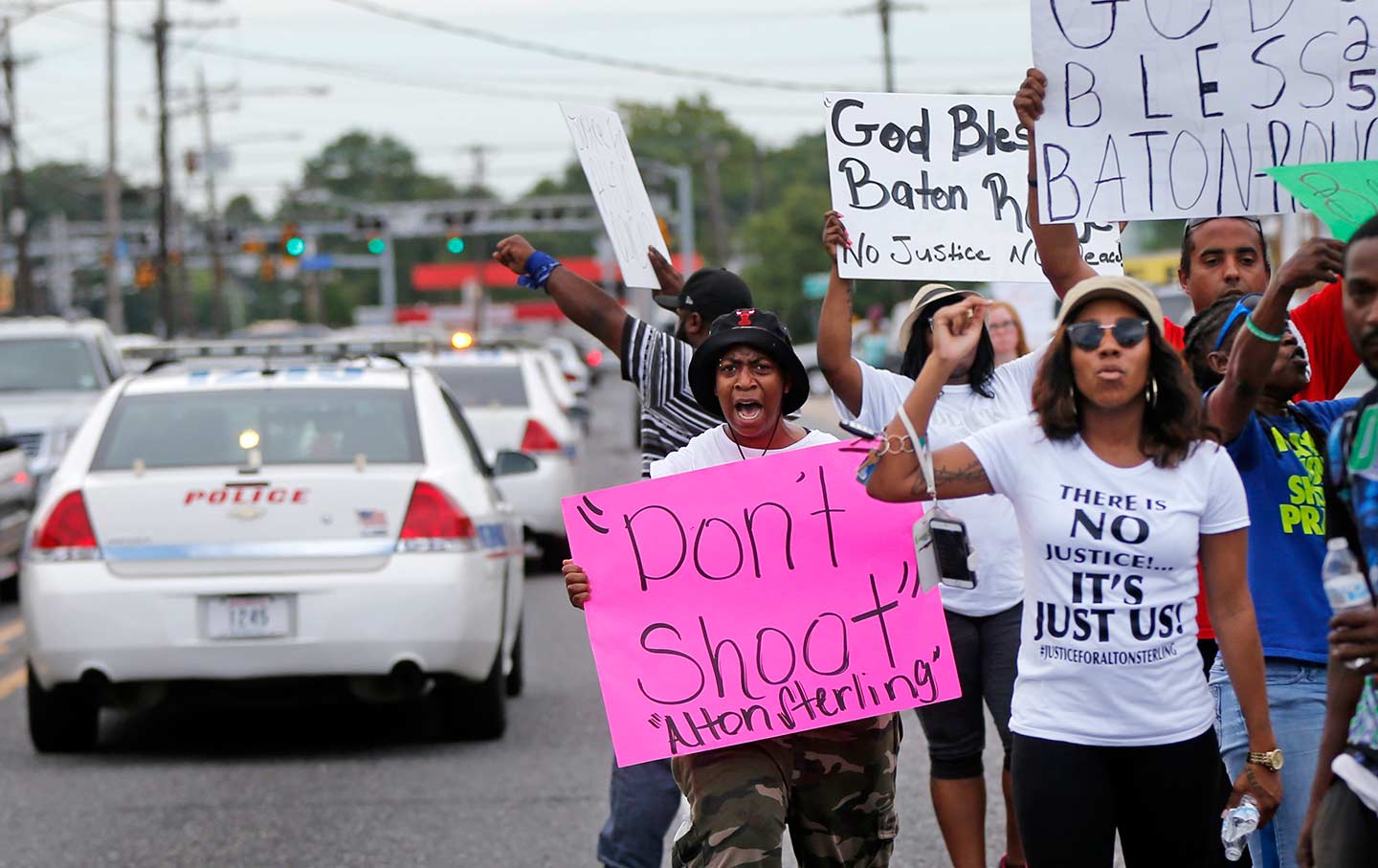Writing movingly in The Nation, Kai Wright contends that the deaths of Alton Sterling and Philando Castile this week, along with the deaths of an appalling number other people of color at the hands of the police, show that the US has too much law enforcement. In neighborhoods of color across the US, police are a pervasive and intrusive feature of daily life. This heavy police presence is ostensibly intended to “protect the community,” but as the rash of recent murders by cops demonstrates, the police themselves are an enormous threat to community safety. Here’s an excerpt:
From case to case the details have shifted, but a depressing through line for all of the people whose names have become hashtags over the past two years is the ho-hum way in which their last moments began. In each case, one can reasonably ask why the encounter involved armed, hyped-up cops at all. Which points to a more fundamental solution than those we most often discuss when we march through the grimly familiar stations of public mourning and debate that will accompany Sterling and Castile’s deaths.
Yes, cameras are a reasonable precaution, both those worn by cops and those that brave citizens wield. Absolutely, better training in the use of non-lethal force and awareness of implicit bias is a must. Surely creating systems to evaluate law enforcement officials based on the help they provide rather than the arrests they make would improve things. And no doubt prosecutors need to be reined in. But all of these things ease the symptoms rather than treat the disease. We need to start asking why we have so much law enforcement in the first place, and whether much of it is truly needed.
Law-enforcement agencies are among the largest and most powerful bureaucracies in most localities, and they are deeply enmeshed in our daily lives, particularly in communities of color. They are our first responders. They are in our schools. They are our immigration officials. For the most vulnerable among us, they are often what passes for social workers and mental-health-care providers. And they are armed. At some point, we must question whether all of this law enforcement is necessary, and whether public safety is best served by having much, much less of it.
Image via The Nation.
